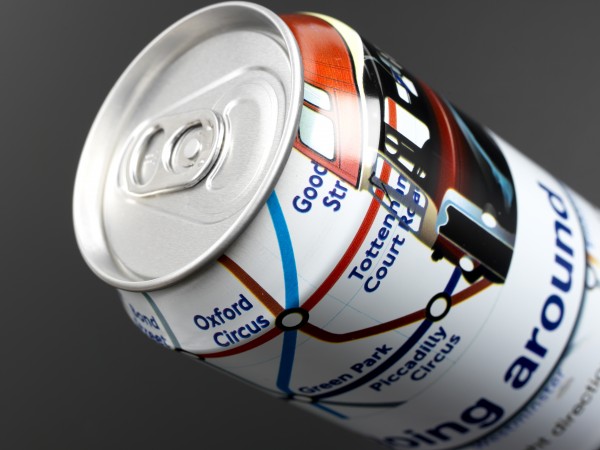 By Marcus Timson
By Marcus Timson
At InPrint 2015, a new exhibitor, Tonejet is planning to demonstrate their can printing machine that sounds very exciting indeed. The drivers for adoption of this technology, according to Simon Edwards, VP of Sales & Marketing at Tonejet, are very significant indeed not least because cans are being increasingly used by the craft drinks market which is growing at a rapid pace.
But firstly, I had to ask Simon, what is a craft drink?
"Craft drinks are independently made, brewed or distilled in relatively short run, more locally to demand and with ingredients that may be organic, or locally sourced. The principle is that the drinks are brands that are positioned outside of the mainstream and offer consumers an alternative to mass produced, homogenised product that is more sustainably produced." explains Simon.
In the US, in order to be formally classified as a craft beer producer, the US Brewers Association stipulate that the volume of production must fall below 6 million barrels or 800 million litres and the ownership of the company must be controlled independently of any mainstream producer. Not more than 25% of ownership is allowed to be allocated to a corporate brewer or brand plus the craft drink must be 'traditional' in its production process, not containing a lot of nasty additives and preservatives."
A move to cans
In the US alone, there are 3,040 craft breweries and this has increased by 500 in the past 12 months. Craft beer itself is growing in production per year by 17% and is fast outstripping total beer consumption growth of 0.9%.
Of the 3,040 craft breweries, around 450 have moved their production into aluminium cans from bottles. There are plenty of benefits that aluminium cans have over bottles, not least their recyclability, their cost and their ability to chill the liquid faster. Cans are airtight, lightproof, they don't impact on flavour as no chemicals get transferred into the beer. Tonejet printed cans are 100% recyclable, there is no label printing process as there is with glass bottles. For festival organisers and pubs they are safer, reducing waste and a marketers dream come true.
It is true that there are already techniques for digitally printing onto cans, however the process is comparably time consuming and costly. For example, you might have to print onto shrink film and then you will have to wrap the cans onsite at the canning plant. The cost per can, according to Simon could typically be up to 7 cents each and to wrap the can, the cost is an additional 17 cents. When you add the cost of the can itself, which is 11 cents, you are looking at 35 cents per can before you have even filled the can up with liquid!
Digital adoption and integration
For Tonejet, imagine a technique where it enabled you to achieve the flexibility of digital without the significant increase in cost per can. This is where the opportunity is truly compelling.
Up to now, Simon believes that the motives, for packaging printers and converters, for adopting digital technology has been with large scale production in mind as opposed to short run value. This mind-set, Simon believes, has likely slowed adoption down as digital is not able to match analogue's printing performance and should therefore not be positioned in this way.
Localisation and Personalisation
The potential of Tonejets technology for craft beer is tremendous because in short, digital lends itself to niche production. Locally produced product simply gets to customers more quickly, they are more tailored to demand and therefore their value resonates with consumers more powerfully. I truly think people are actually beginning to rebel against globally mass produced products in favour of more locally produced. But only if the price is right!
You can digitally print direct to a can without the need for labels and at a price that is incredibly low. This is due to the toner ink based technology, the fact that it uses very little ink as well as there being no food safety issues typically attributed with other inkjet technologies that utilise UV inks.
With Tonejet printed cans you could easily differentiate each one in a number of different supermarkets, in a particular area where you either believe you will gain a high density of potential custom, or you could create designs to arrest away customers from your competitors.
Tonejet Technology Comparison
Cost of Tonejet ink 0.10 Cent per can
UV Inkjet 1 Cent per can
Label Print 10 Cent per can
Localised manufacture of any product enables marketers to augment the image and relevancy of the product directly to the consumer in any particular vicinity. Add to this the possibility to personalise through an event or a particular campaign and you get immensely powerful packaging.
For example, for festival goers, every single aluminium can could feature the running order for the days segment act, when, where, why at the festival is on the day in question and the can in question providing significant value for those confused festival goers
www.industrialprintshow.com